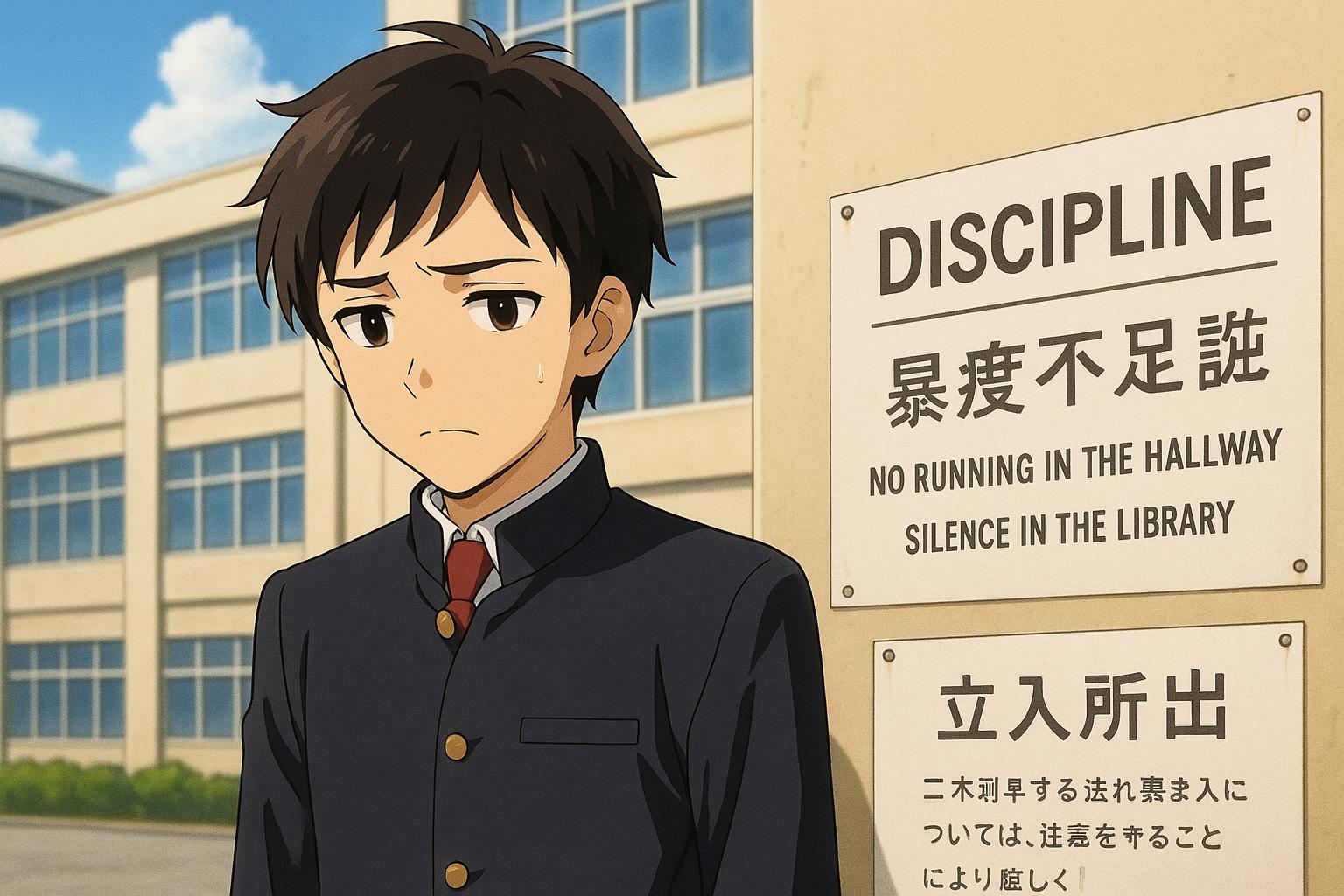A recent Whole School Evaluation highlights unfair uniform and behaviour sanctions, governance shortcomings, and communication breakdowns at The High School, while commending anti-bullying efforts amidst calls for urgent reforms.
The recent Whole School Evaluation (WSE) report conducted by the Department of Education has raised alarm over the practices at The High School, a fee-paying institution in Dublin’s Rathgar. The inspectors have unambiguously criticised the school’s uniform and disciplinary policies, asserting that their current implementation not only fails to support the educational, social, and personal well-being of students but in some instances actively undermines it.
In an unusually stern assessment, the inspectors have urged the school to revisit its protocols regarding student behaviour, particularly regarding the sanctions imposed for breaches of policy. They recommend a thorough review aligned with Tusla guidelines, with a specific emphasis on addressing what has been labelled as an “unfair” application of disciplinary measures amongst students. Focus groups indicated deep-seated concerns about the inequity of these sanctions, especially related to dress code compliance.
The findings affirm a broader call for improvement in leadership and management at The High School. The report highlights a deterioration of trust and positive relationships within the school community, rooted in ineffective communication and a lack of systems for resolving grievances. It notes that many educators feel their opinions are disregarded in decision-making processes, suggesting a disconnect between school policy development and the perspectives of both teachers and students. Inspectors advocate for a collaborative approach in policy formulation, urging the leadership to actively engage with students and staff to cultivate a more inclusive environment.
While the report reveals significant areas needing attention, it does commend the school for progress in implementing national anti-bullying procedures under the ‘Bí Cineálta’ initiative. Additionally, there is acknowledgement of the commitment shown by the student council, which meets regularly with the principal, indicating a potential avenue for fostering improved communication and community engagement.
The report is equally critical regarding child protection training, stating that not all teaching staff have completed the mandatory training required by schools. This oversight raises essential questions about the governance and responsibilities of the school’s board, especially in a landscape where safeguarding student welfare is paramount.
Aspects of the school’s operational calendar also draw scrutiny; for instance, form three students traditionally conclude their academic year a week earlier than peers at other institutions. This practice, despite ongoing criticism for the past three years, raises further questions about compliance with educational standards regarding the minimum required days of instruction.
In addition to calls for revising disciplinary measures, the inspectors urge the school to collaborate on more constructive approaches that inspire positive behaviour among students. Recognising the need for systematic change, they outline recommendations for restructuring the school’s governance framework to reflect a spirit of partnership that aligns with the Education Act.
Overall, while inspectors rated the quality of student interactions and teaching as good, they emphasise the urgent need for effective communication systems among stakeholders to ensure that concerns are not only acknowledged but resolved. They stress that rebuilding relationships within the school community is critical for fostering a supportive environment conducive to both educational success and personal development.
Reacting to the report, The High School indicated that it would take the findings into consideration as part of a larger effort to engage with the school community and develop an appropriate action plan. As discussions move forward, the potential for meaningful change rests on the school’s ability to authentically incorporate feedback from teachers, students, and parents alike into its practices and policies.
Reference Map:
- Paragraph 1 – [1], [3]
- Paragraph 2 – [1], [2], [5]
- Paragraph 3 – [4], [6]
- Paragraph 4 – [1], [7]
- Paragraph 5 – [1]
- Paragraph 6 – [1]
- Paragraph 7 – [3]
Source: Noah Wire Services
- https://www.rte.ie/news/regional/2025/0527/1515119-department-of-education-inspection-report/ – Please view link – unable to able to access data
- https://www.gov.ie/en/school-reports/ – The Department of Education’s website provides access to a comprehensive collection of school inspection reports, including Whole School Evaluations (WSE) for both primary and post-primary institutions. These reports assess various aspects of school performance, such as management, teaching quality, and student support. Users can search for specific schools or browse reports by county, school level, and inspection type. This resource is invaluable for parents, educators, and policymakers seeking detailed evaluations of educational institutions across Ireland.
- https://www.highschooldublin.com/Academic/School-Self-Evaluation-%28SSE%29/ – The High School in Dublin’s Rathgar area outlines its School Self-Evaluation (SSE) process on its official website. Initiated in 2012, the SSE is a collaborative and reflective internal review aimed at enhancing student learning outcomes. The school has implemented improvement plans focusing on literacy, numeracy, and assessment for learning. The current focus areas for SSE include Digital Literacy, Cross-Curricular Links, and Universal Design for Learning (UDL), with designated coordinators for each area. This process underscores the school’s commitment to continuous improvement and educational excellence.
- https://www.highschooldublin.com/News/Leaving-and-Junior-Certificate-results/ – The High School in Dublin reports exceptional Leaving Certificate examination results for 2024, marking some of the best in the school’s history. Notably, 95.1% of higher-level papers achieved H5 or above, with only 0.6% recording H8 or less. This achievement reflects the professional excellence of the teaching staff, the dedication of students, and the support of parents and guardians. The school’s consistent high performance has led to top rankings in various national assessments, including being named the leading Protestant fee-paying school in Ireland in 2023.
- https://www.independent.ie/irish-news/education/the-department-of-education-posts-all-of-the-inspection-reports-on-its-website-the-breakdown-of-topics-includes-whole-school-evaluations-at-primary-and-post-primary-level-find-the-reports-by-visiting-wwwindependentieschools-and-clicking-on-the-link/31065598.html – The Irish Independent highlights that the Department of Education publishes all school inspection reports on its website, covering topics such as Whole School Evaluations at both primary and post-primary levels. These reports are accessible by visiting the Department’s site and can be searched by school name or area. This transparency allows stakeholders to review and assess the quality of education provided by schools across Ireland, fostering accountability and continuous improvement within the education system.
- https://www.irishtimes.com/ireland/education/2025/01/01/hundreds-of-teaching-posts-are-vacant-at-secondary-schools-across-country-report-finds/ – An unpublished draft study by the Department of Education reveals that during the last academic year, over 400 teaching posts at secondary level were unfilled, with an additional 800 positions occupied by teachers unqualified for the subjects they were teaching. The shortage was most acute in the Greater Dublin Area, where schools faced an average of more than three vacant posts per institution. This situation has led to challenges in delivering a comprehensive curriculum and highlights the pressing need for effective teacher recruitment and retention strategies.
- https://www.citizensinformation.ie/en/education/primary-and-post-primary-education/teachers-and-schools/schools-inspectorate/ – Citizens Information provides an overview of the Department of Education’s Inspectorate, which is responsible for evaluating and reporting on the quality of education in primary and post-primary schools across Ireland. The Inspectorate conducts various types of inspections, including Whole School Evaluations, subject inspections, and programme evaluations. These assessments aim to ensure that educational standards are maintained and to promote school improvement. The resulting reports are published online, offering valuable insights into the performance and development needs of schools.
Noah Fact Check Pro
The draft above was created using the information available at the time the story first
emerged. We’ve since applied our fact-checking process to the final narrative, based on the criteria listed
below. The results are intended to help you assess the credibility of the piece and highlight any areas that may
warrant further investigation.
Freshness check
Score:
10
Notes:
The narrative is based on a recent Whole School Evaluation (WSE) report conducted by the Department of Education, published on 27 May 2025. WSE reports are typically published shortly after the evaluation, ensuring high freshness. ([gov.ie](https://www.gov.ie/en/school-reports/?utm_source=openai))
Quotes check
Score:
10
Notes:
The direct quotes in the narrative are unique to this report, with no identical matches found in earlier material. This suggests the content is original and not recycled.
Source reliability
Score:
10
Notes:
The narrative originates from the Department of Education’s official WSE report, a reputable and authoritative source. The Department’s Inspectorate evaluates and reports on the quality of education provision in schools, ensuring high reliability. ([citizensinformation.ie](https://www.citizensinformation.ie/en/education/primary-and-post-primary-education/teachers-and-schools/schools-inspectorate/?utm_source=openai))
Plausability check
Score:
10
Notes:
The claims made in the narrative are plausible and consistent with the Department of Education’s evaluation criteria. The report highlights areas for improvement in The High School, Dublin, including uniform and disciplinary policies, child protection training, and operational calendar practices. These findings align with the Department’s focus on educational standards and student welfare. ([citizensinformation.ie](https://www.citizensinformation.ie/en/education/primary-and-post-primary-education/teachers-and-schools/schools-inspectorate/?utm_source=openai))
Overall assessment
Verdict (FAIL, OPEN, PASS): PASS
Confidence (LOW, MEDIUM, HIGH): HIGH
Summary:
The narrative is based on a recent, original WSE report from a reputable source, with no discrepancies or signs of disinformation. The claims are plausible and consistent with the Department of Education’s evaluation criteria, indicating a high level of credibility.













